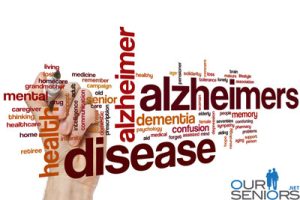 For years there has been speculation that some type of special diet or dietary supplement can halt or reverse Alzheimer’s disease. This subject has been investigated by hundreds of medical researchers without truly decisive results. However, a study published in the February 2015 Journal of the Alzheimer’s Association strongly pointed to certain elements in diet that, over time, can affect the chance of developing Alzheimer’s disease.
For years there has been speculation that some type of special diet or dietary supplement can halt or reverse Alzheimer’s disease. This subject has been investigated by hundreds of medical researchers without truly decisive results. However, a study published in the February 2015 Journal of the Alzheimer’s Association strongly pointed to certain elements in diet that, over time, can affect the chance of developing Alzheimer’s disease.
The internet and popular media are full of claims that this or that food, supplement or other ‘treatment’ can prevent or reverse Alzheimer’s and/or other forms of dementia. Some of these claims should be dismissed as wishful thinking or false advertising, and many are unproven speculation. Research into the MIND diet published in the Journal of the Alzheimer’s Association is far more believable.
The Journal of the Alzheimer’s Association (Alzheimer’s & Dementia®: The Journal of the Alzheimer’s Association) is a peer-reviewed scientific-medical journal that covers the entire spectrum of research into Alzheimer’s disease and dementia. “Peer-reviewed” means that any article published in that professional journal has been examined by qualified experts and found to have merit. This study followed 923 individuals, ages 58 to 98, for 4 1/2 years. The researchers concluded that people who followed the MIND diet closely, reduced their chance of developing Alzheimer’s by 53%, while those who followed it less strictly showed a 35% lower risk. Other studies have shown that the MIND diet slowed or reduced the chance of cognitive decline, the loss of thinking and reasoning ability, in older adults.
So, what is the MIND diet? The initials are short for, “Mediterranean-DASH Diet Intervention for Neurodegenerative Delay,” and it is a combination of two diets, the Mediterranean and DASH. The good news is that it shares many elements with the healthy-heart and cardiovascular diets with which you are familiar. The bad news is that a significant number of us pay little attention to the good advice.
Specifically, what is in the MIND diet? The MIND diet advocates 10 ‘brain-healthy’ food groups, most of which you have seen before in diets recommended by organizations like the Heart Association. They are fish, poultry, olive oil, green leafy vegetables, other vegetables, whole grains, nuts, berries, beans, and (moderate amounts of) wine.
It is a high protein, low saturated fat diet that calls for beans every other day, poultry twice a week, and fish once a week. It also emphasizes vegetables and whole grains: 3 servings of whole grains every day, a leafy salad and at least 1 vegetable. Collard greens, kale, and spinach are especially recommended. The diet calls for substituting olive oil for other fats like butter and using berries and nuts as snacks.
The MIND diet also calls for a moderate amount of wine; typically, that would be 1 glass (4 ounces) for women and 2 glasses for men. Consuming more than recommended amounts of wine can have bad effects on brain health and may make you more likely to get dementia. This diet also singles out some “unhealthy brain” foods groups, specifically limiting cheese, butter, margarine, fried food or ‘fast food,’ pastries, sweets and red meat. Again, this is advice you have probably heard from your doctor to prevent heart and cardiovascular disease.
The search for a cure or a 100%-certain way to prevent Alzheimer’s is continuing. Until it can be found, Alzheimer’s is going to be a greater and greater strain on the health care system, on victims and their families. There will be increasing demand for services like memory care living, senior home care and senior assisted living. The families and loved ones of Alzheimer’s disease patients will bear a lot of this burden, but they are not alone.
If you have a family member or loved one who suffers from Alzheimer’s, you know how difficult it can be to locate good quality memory care living, senior assisted living or in-home senior care. Helping with this kind of problem is one of OurSeniors.NET’s core missions.
Please call on OurSeniors.NET, its professional staff and considerable resources if you are facing this challenge. OurSeniors.NET can help locate the best providers of-
- Senior home care
- Senior assisted living
- In home senior care
- Retirement communities in Florida
The OurSeniors.NET Senior Transition Pro Team can be a tremendous help in finding a senior real estate specialist, a Florida attorney, Florida CPA or financial advice for seniors. You can contact an OurSeniors.NET Advisor by phone at 866-333-2657 (Se Habla Español), or by using the link- Contact Us.
Check out our website at OurSeniors.NET and take an online look at our senior living magazine, OurSeniors.NET Magazine by clicking its link.
